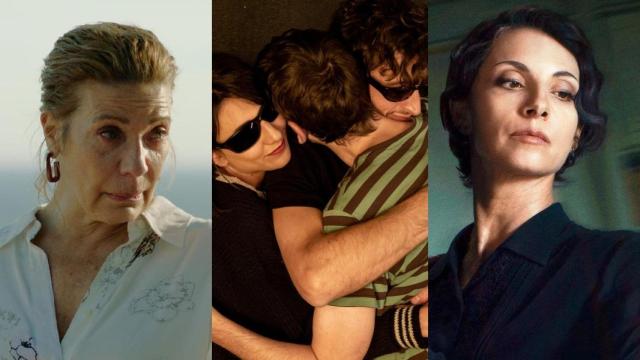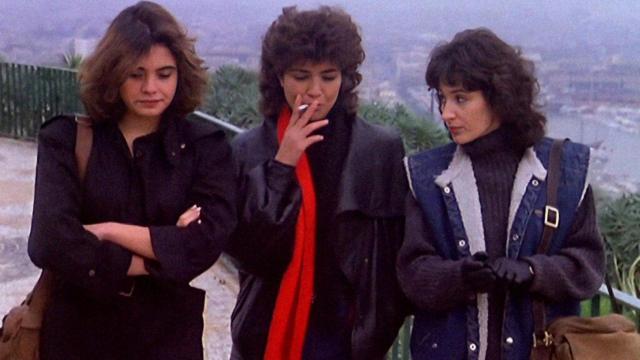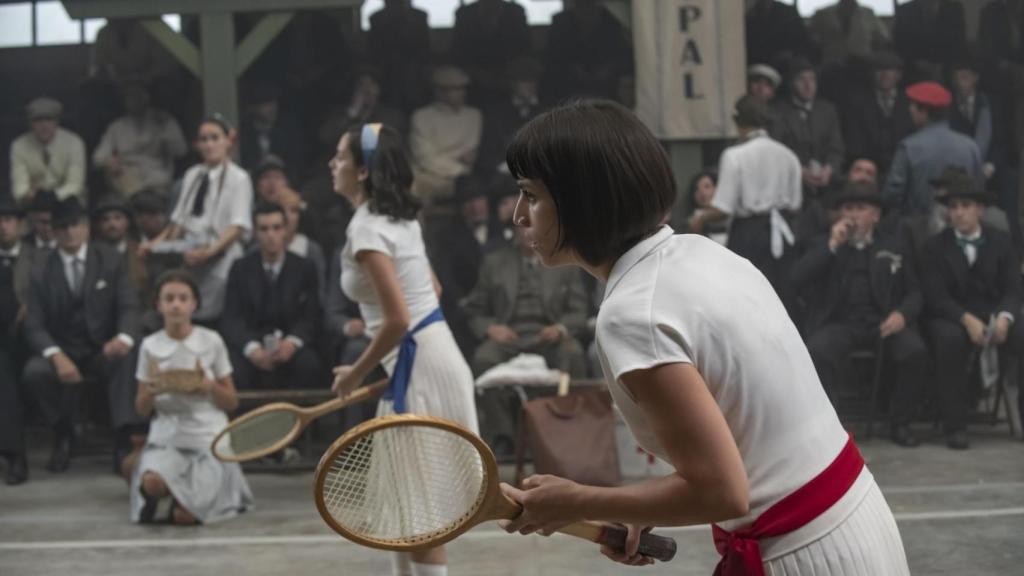
Esta serie se basa en la historia real de las primeras deportistas profesionales de España: la pelota vasca en 1926
This new series is based on the real story of Spain's first professional female athletes: "pelotaris" and pioneers
You can now watch this miniseries about a group of women who overcame the prejudices and limitations prevailing 100 years ago.
In 1917, the businessman from San Sebastián, Ildefonso Anabitarte, took several young Basque racquetball players to Madrid. The show they put on delighted the audience, marking the beginning of a great period of fame for these racquetball players, around whom a lot of money was involved in bets and organized tournaments.
At that time, they were paid up to 500 pesetas per match, triple the salary of a worker. They were the first federated women in a sport in Spain and unintentionally became feminist pioneers in the world of sports.
They were so popular that they had their own collection of trading cards and had many admirers both in Spain and abroad. However, in the Basque Country, the birthplace of Basque pelota, these racquetball players were looked down upon for being independent women capable of earning money by playing.
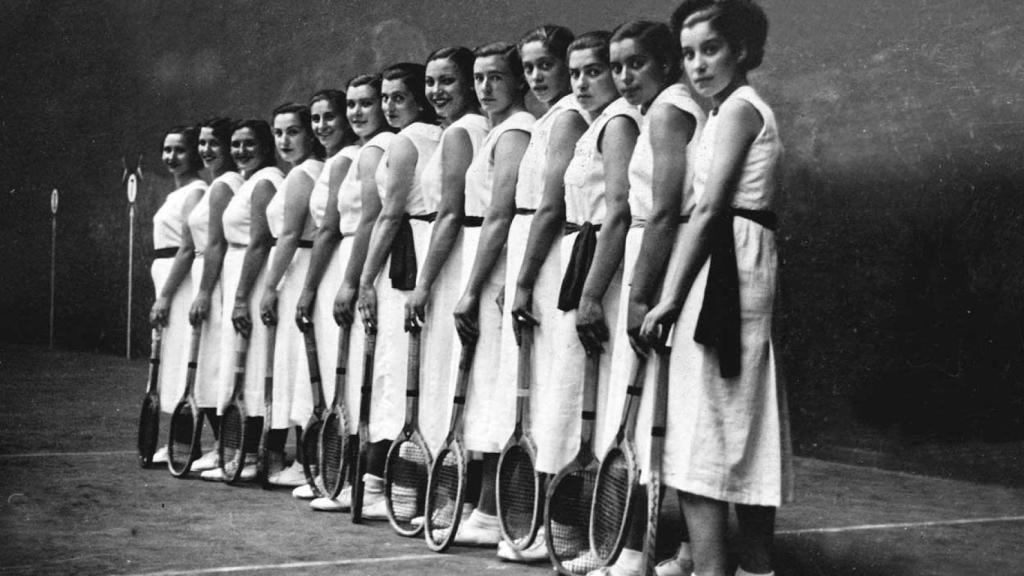
Basque racquetball players in the 1920s FEPelota
'The Pelotaris 1926'
The newly released eight-episode series on SkyShowtime narrates the struggle of Idoia, Itzi, and Chelo, successful athletes who face the consequences of breaking the mold in a world where ambition and sexual freedom were denied to women.
A story of love, ambition, and power in which these three racquetball players strive to achieve their dreams by overcoming the prejudices and limitations prevailing in the 1920s, where men monopolized all power. As a result, they must pay a high price for doing what was supposed to be forbidden: earning their own money, succeeding professionally, standing up against abuse, or living their sexuality freely.
The three protagonists must break many stereotypes, both professionally and personally, facing situations where drama combines with elements of adventure and thriller in plots involving gangsters, corrupt police, hitmen, and unscrupulous businessmen.
It is a story of independent women, ahead of their time, narrated around three pioneers who confronted a society dominated by men and laid the foundations of women's sports.
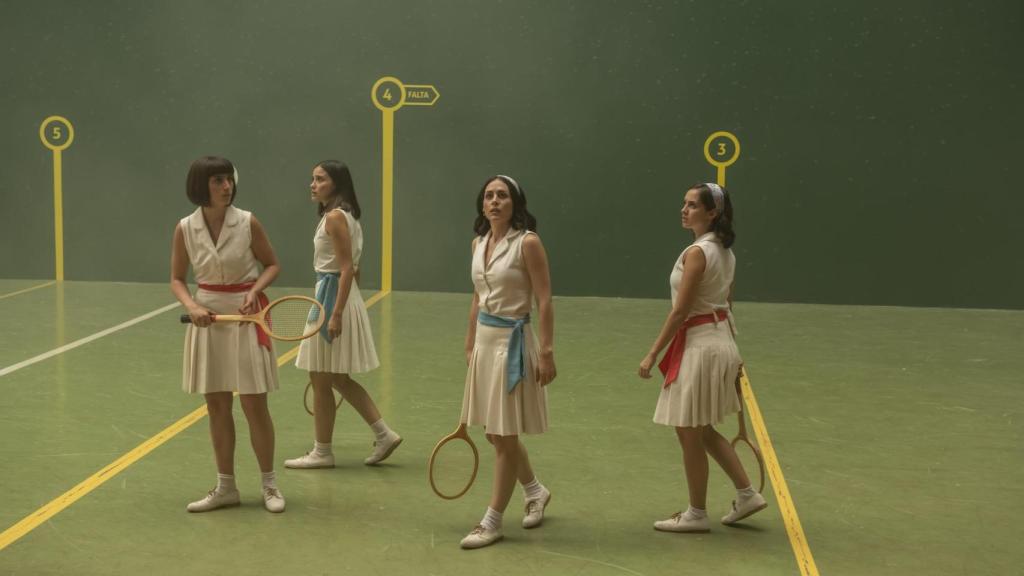
'The Pelotaris 1926'
Behind and in front of the camera
Created by Marc Cistaré (Vis a vis, El barco, La víctima número 8), the series stars Claudia Salas, María de Nati, and Zuria Vega as Idoia, Itzi, and Chelo.
The international cast includes Spanish actors Alex Onieva, Krista Aroca, Eva Rubio, Jesús Castejón, and Peter Vives; Argentine actor David Chocarro; Mexican actors Marco de la O, Vicente Tamayo, Héctor Kotsifakis, Antonio Gaona, and Eligio Menéndez; and Colombian actress Viviana Serna.
Tráiler | 'Las Pelotaris 1926'
Shot in Spain and Mexico
The Pelotaris 1926 is produced by The Mediapro Studio in collaboration with TelevisaUnivision and was filmed in Spain and Mexico, the two countries where Basque pelota gained great importance at the beginning of the last century.
The filming in Spain took place in Madrid, Guadalajara, and the Basque Country. Among other locations, scenes were shot at the Hotel Londres and La Concha Beach in San Sebastián, as well as at the Plaza Berri fronton in Biarritz and the streets of various Basque towns such as Artikutza and Pasaia.
On the other hand, some of the most prominent locations in Mexico include the iconic Zócalo, the modernist Gran Hotel Ciudad de México, picturesque places like the magical town of Tepoztlán, and the paradisiacal enclave of Las Estacas.
Details
- Where to watch: SkyShowtime
- Duration: 8 episodes of 50 minutes
- Year of production: 2024
- Created by: Marc Cistaré
- Cast: Claudia Salas, María de Nati, Zuria Vega, Alex Onieva, Krista Aroca, Eva Rubio, Jesús Castejón, and Peter Vives
*This article has been automatically translated using artificial intelligence

